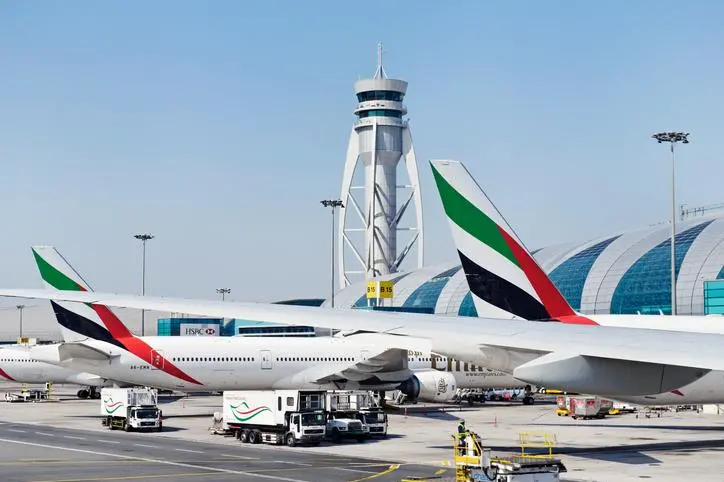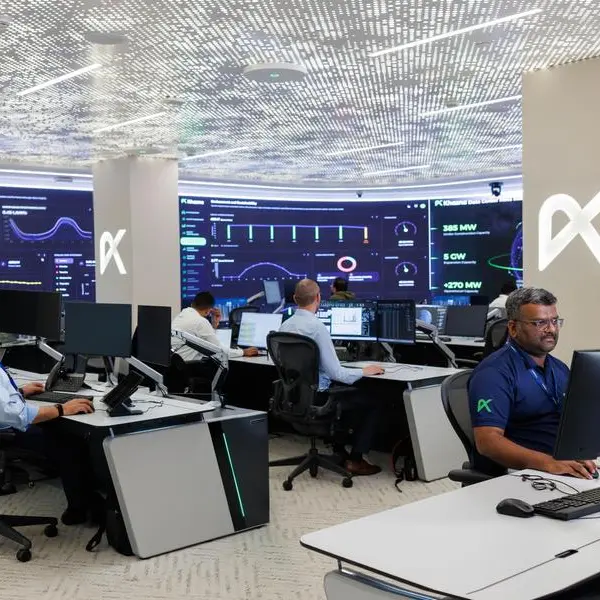PHOTO
A leading official at Dubai's Emirates airline has said the company "will be ready" to accommodate any expected increase in traffic that could be created if the government confirms the introduction of a new 'stopover' visa for transit passengers.
Reports emerged earlier this week stating that the United Arab Emirates Cabinet had approved a proposal to develop a general policy that will grant transit passengers, for a limited time, a day-long visa, allowing them to experience the city rather than just passing through it.
"Now, we follow with interest... all the developments around the transit visa that are apparently in the pipeline," Thierry Antinori, chief commercial officer of Emirates told journalists at a press conference on Wednesday for this year’s Arabian Travel Market - a three-day conference and exhibition that begins on Sunday.
"So we are observing that and we will be ready, together with other stakeholders, to develop what we have already developed today, but to extend to more people according to what the government will decide and finalise, a stopover in Dubai or a stopover in the UAE," he added.
Although citizens from more than 50 countries can currently travel visa-free or gain a visa on arrival to the UAE, passengers from many other nations, including India and Pakistan, all need to be granted visas in advance in order to leave the airport.
Antinori said that currently about 70 percent of passengers who arrive at Dubai airport each year are transit passengers, and only 30 percent stay in the city.
"All the visa opportunities that are in pipeline... will enable us to develop more stopover product in Dubai," he added. "It's a good opportunity for all of the industry here. Because we have the product and we have the excitement around the Dubai brand."
Issam Kazim, chief executive officer of the Dubai Corporation for Tourism and Commerce Marketing (DCTCM), said that although his department works closely with immigration officials, "there's always a lot of work that I'm not privy to".
He said that stakeholders from over government departments are "extremely supportive" of the Dubai 2020 tourism strategy, highlighting the granting of visas on arrival to citizens of Russia, China and Kazakhstan as examples.
When asked whether or not there was a list of countries being drawn up whose citizens will be granted the stopover visa, Kazim said: "As we keep our industry stakeholders aware of our plans and our strategies, we also keep the government stakeholders aware of what we're doing and what we're planning, and if there are any hurdles that need to be overcome, we will present that to them as well.
"We are always working on making sure that all the markets that we are serving with Emirates or other carriers are actually the first ones that we look at and making sure that we make it as easy as possible for them to come in," Kazim continued. "If transit and stopover could be the first opportunity, then let's start there."
In February, DCTCM announced that overnight visitor numbers for 2017 were up 6.2 percent year-on-year to almost 15.8 million.
Kazim said that the work it was doing with trade partners in Dubai meant that it was "confident" of hitting the target of 20 million visitors by 2020 set out in its tourism strategy and is already working on a longer term strategy beyond 2020.
Simon Press, senior exhibition director for Arabian Travel Market (ATM), said that he expects visits from industry professionals at this year's show to top the 40,000 people who attended last year's event.
He said that more than 2,500 companies will exhibit at this year's show, which is now in its 25th year, including over 100 new exhibitors.
One of the themes of the 2018 event is attracting millennial travellers, which Olivier Harnisch, the chief executive of Emaar Hospitality, said were being addressed in Dubai and by his company.
"We've really seen in the last few years a dramatic shift in guest expectations," he argued.
He said guests with a "millennial mindset" embraced travel but looked for authenticity and for quality, value hotels.
"One of the differences between Dubai and other cities in the world is that there's a big skew towards luxury and upscale hotels, whereas the millennial mindset has a certain affinity towards a certain simplicity," Harnisch said.
"Those millennials don't necessarily have less money to spend. They choose to spend less money on the hotel part, however, very often they choose to spend more on entertainment and other things."
Our Standards: The Thomson Reuters Trust Principles
Disclaimer: This article is provided for informational purposes only. The content does not provide tax, legal or investment advice or opinion regarding the suitability, value or profitability of any particular security, portfolio or investment strategy. Read our full disclaimer policy here.
© ZAWYA 2018





















